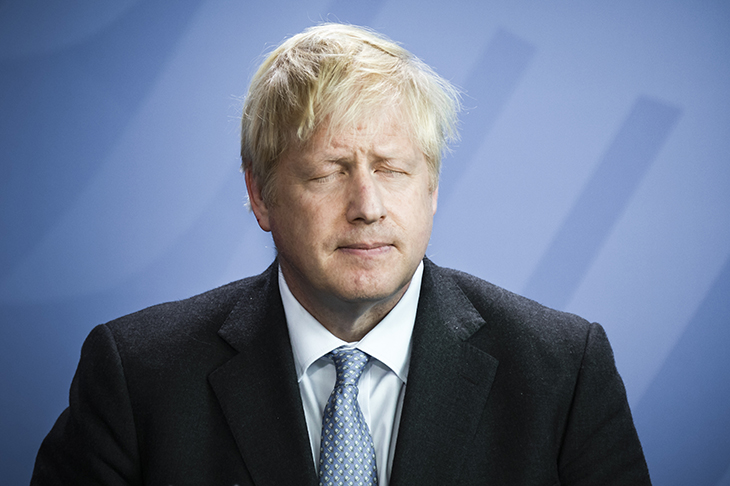When Jeremy Corbyn declared at Labour conference that his party would only allow an election once no deal had been taken off the table, Members of Parliament began to wonder if it could be put off until the new year. The prime minister’s tormentors can’t agree when exactly they would like to go to the country, but all agree that there are plenty of ways to torture Boris Johnson. It’s as good a way as any to pass the time.
The Tories no longer have a working majority, so these opposition MPs — aided by activist Speaker John Bercow — now hold the power. What will they do? Well, the Conservatives are meant to be gathering in Manchester this weekend for their annual meeting. However, opposition MPs plan to vote against any conference recess. They will have the support of the majority of those Tory rebels who had the whip withdrawn over Brexit. ‘It would look a bit odd to have parliament returned and then for it to vote to leave again,’ explains one person who is privy to the plans. If they succeed, expect to see a slimmed-down ‘people’s conference’, with ministers ferried from Westminster to Manchester for limited appearances.
Next: plans to scrutinize the Johnson government over its handling of both Brexit and prorogation. MPs could use urgent questions and humble addresses to force the government to reveal its legal advice as well as more details of Project Yellowhammer — the government’s worst-case scenarios for no deal. ‘Where there’s an opportunity to embarrass the government over its no-deal planning, we will take it,’ says one gung-ho MP.
One of the things making pro-EU MPs anxious is No. 10’s insistence that they have found a way around Hilary Benn’s anti-no deal legislation which passed earlier this month. It’s supposed to force the government to seek an Article 50 extension, but a number of Johnson’s aides say they have found a way out. MPs could try to demand that the government publishes any legal advice they have received on finding a loophole. There are even discussions underway to pass another anti-no deal bill if need be — in which there might be no wriggle room for No. 10.
Away from Brexit, there is even talk of forcing an inquiry into Johnson’s relationship with the American businesswoman Jennifer Arcuri. He is facing questions about the nature of their relationship and why she received £126,000 worth of grants and sponsorship for her companies when Johnson was mayor of London. The prime minister has so far not been damaged in office by his colorful private life, but if he has been corrupt with public money that could be a different matter.
Another idea doing the rounds — and keeping people in Tory HQ up at night — is whether there is now a majority in the Commons to give 16-year-olds the vote. The opposition parties broadly agree that it would be beneficial to them in any election, and former Conservative MPs such as Justine Greening have also previously spoken positively about the idea. If an election is delayed further, there could even be time to register these new voters before a snap poll.
What the Tories fear most, however, is parliament backing a second referendum. Tom Watson, Barry Gardiner and Oliver Letwin have all spoken positively about the possibility of holding one before any general election. Given that Labour policy is to hold a second referendum, some proponents of the idea think Corbyn could be malleable. ‘That’s the aim — to get enough people on board that we can do a second referendum first. It would fix a lot of our electoral problems,’ says a pro-EU Labour backbencher. But for Boris Johnson and the Tories, it would create a host of new ones.
This article was originally published in The Spectator’s UK magazine. Subscribe to the US edition here.



















